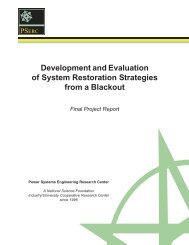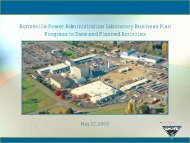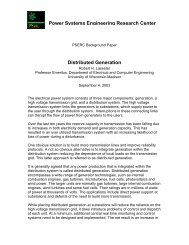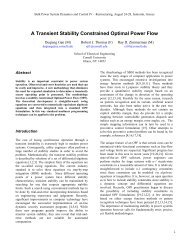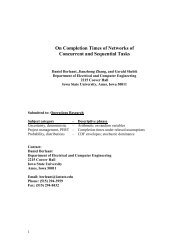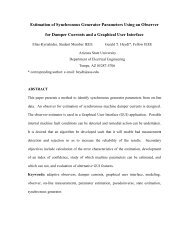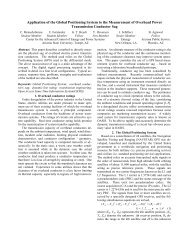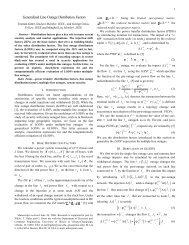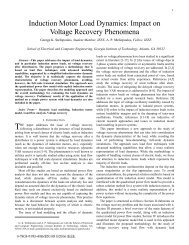Thrive: The Skills Imperative - Power Systems Engineering ...
Thrive: The Skills Imperative - Power Systems Engineering ...
Thrive: The Skills Imperative - Power Systems Engineering ...
You also want an ePaper? Increase the reach of your titles
YUMPU automatically turns print PDFs into web optimized ePapers that Google loves.
32<br />
Council on Competitiveness <strong>The</strong> <strong>Skills</strong> <strong>Imperative</strong><br />
Last Thoughts<br />
Most Americans understand that globalization is a game-changer. But many are not<br />
sure that they are going to like the new game. For better or worse, the modern economy<br />
is a global economy, which the United States can influence given the sheer size<br />
of its market. But America is no longer the sole economic superpower.<br />
<strong>The</strong> new global landscape is increasingly shaped<br />
by global enterprises and networks that transcend<br />
national boundaries, by hundreds of millions of new<br />
middle-class consumers that reside outside the<br />
United States, and by millions of new, sometimes<br />
highly credentialed workers whose average salaries<br />
are typically lower than the average American salary.<br />
What this enables is a redistribution of assets and<br />
operations on a global scale.<br />
<strong>The</strong> old rules no longer dictate who wins or loses.<br />
What is clear is that new strategies for success are<br />
needed to create the kind of platform that will ensure<br />
that America’s next generations enjoy a rising<br />
standard of living—in short, to ensure that Americans<br />
can compete successfully. That requires that the<br />
focus be put on:<br />
• Enabling the supply of middle-skilled jobs<br />
to match future demand<br />
• Integrating the more complex skill sets required in<br />
service economy jobs into education, training and<br />
research programs<br />
• Extending America’s innovation leadership with<br />
a focus on integrative, interdisciplinary, computational<br />
and entrepreneurial skills—and with a new<br />
emphasis on supporting innovation in service<br />
industries<br />
• Anticipating future skills trajectories at the<br />
cutting edge of sustainability<br />
<strong>The</strong> Goal Posts<br />
To create a skilled workforce, strengthen existing<br />
industries, launch new firms and attract high-value<br />
investment into the United States, we must act and<br />
invest wisely. America needs to prioritize around the<br />
kinds of investment that generate high-wage jobs.<br />
Success in the 21st century means looking forward—positively<br />
and proactively—at where the country<br />
is going, not backward at who is catching up.<br />
<strong>The</strong> rest of the world has been copying the American<br />
innovation model—investing in talent, research,<br />
education and technology, and building a policy<br />
infrastructure that protects IP, opens markets and<br />
supports investment. <strong>The</strong>ir success in attracting jobs<br />
and investments is, in some measure, due to the fact<br />
that they copied a great American roadmap.



